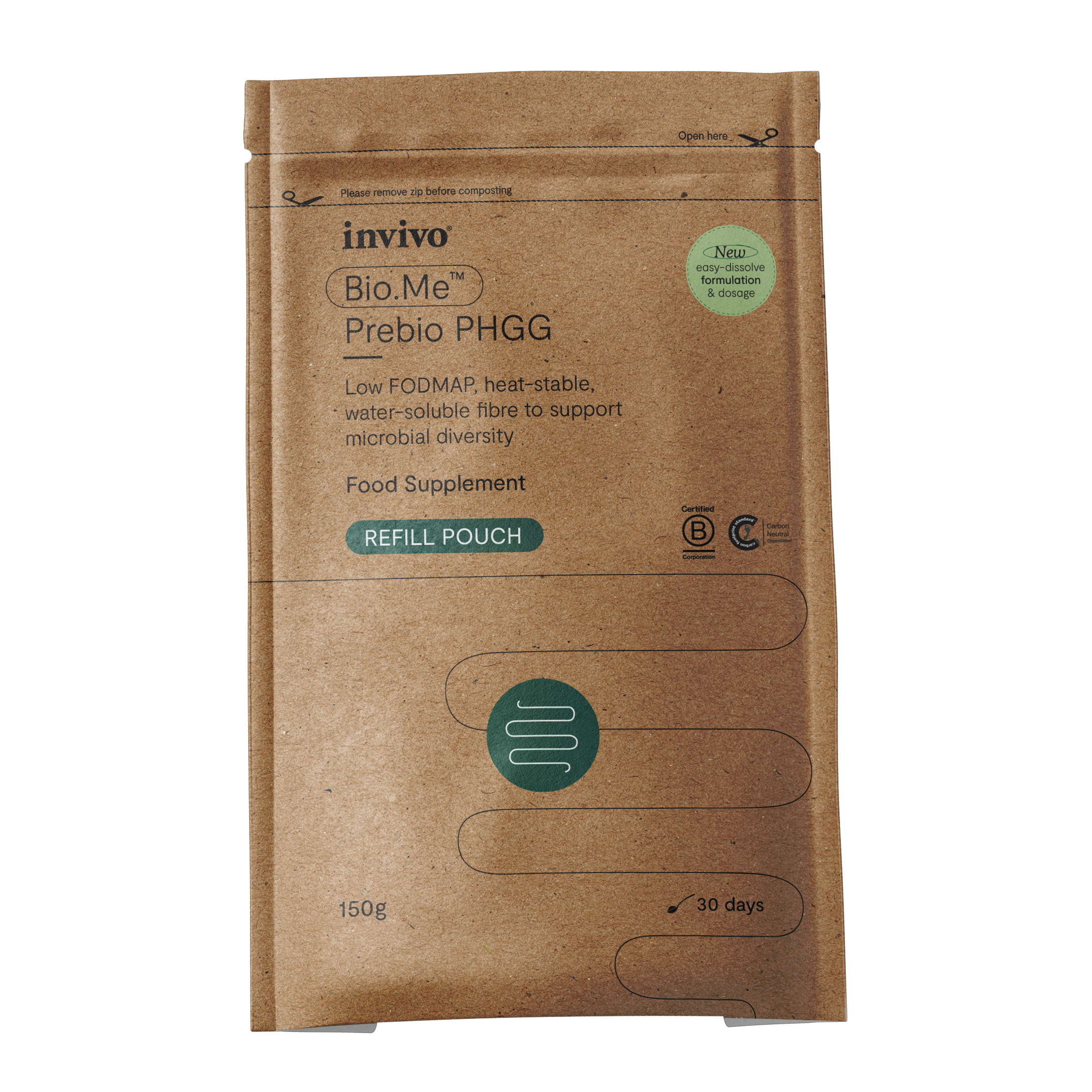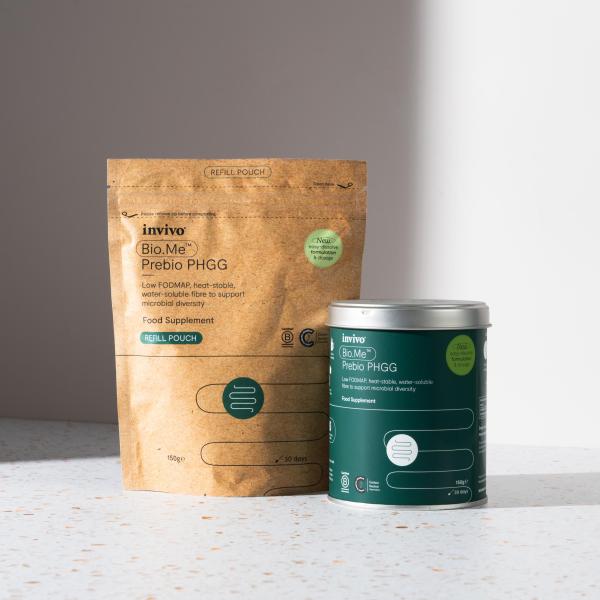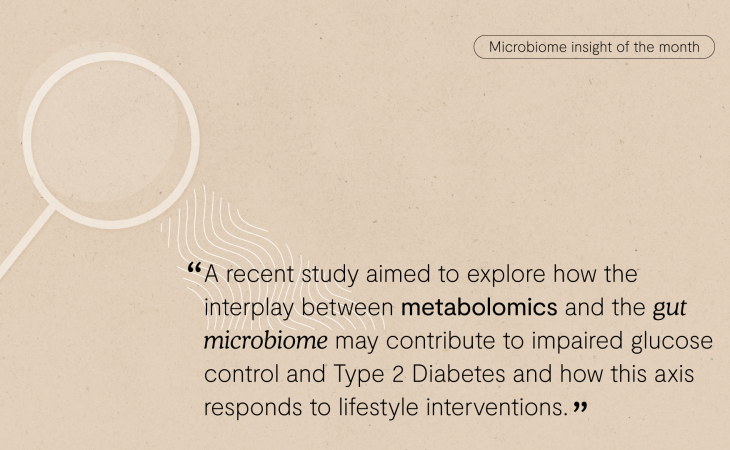Rewriting Diabetes: Could Your Microbiome Be the Missing Link?
Introduction
Approximately 5.8 million people in the UK have Diabetes, with 90% diagnosed with Type 2 Diabetes (T2D)1. Genetic and environmental factors contribute to Diabetes’s development but an estimated 70% of T2D can be attributed to suboptimal diet, which can profoundly impact the gut microbiome2.
Fortunately, dietary and lifestyle interventions can reduce risk, as well as the risk of related conditions, such as obesity and cardiovascular disease2.
A recent study explored how interactions between metabolomics (circulating metabolites) and the gut microbiome may influence glucose control and T2D and how this relationship responds to lifestyle interventions.
Study Design
This study had an observational cohort of 1,167 participants and collected data on:
- >500 metabolites via plasma metabolomics;
- the gut microbiome via metagenomic shotgun sequencing
- Clinical markers, including fasting glucose and oral glucose tolerance;
- Lifestyle data, including diet and exercise information.
The correlation between metabolites and glucose dysregulation and the correlation between metabolites and gut microbiome composition were analysed.
Intervention Subset
Individuals with elevated T2D risk underwent a 3-week lifestyle programme (dietary and exercise-based)
Key Findings:
- Significant Links Between Metabolites and Microbiome
- 502 circulating metabolites significantly correlated with impaired glucose regulation (P < 0.05)
- ~143 of those metabolites (~28%) were significantly associated with microbial taxa (ranked P < 0.05), suggesting ~1/3 of the metabolites are impacted by the gut microbiome
- Specific Taxa Associated with Health-Promoting Metabolites
- A positive, statistically significant association was found between the presence of Hominifimenecus microfluidus and Blautia wexlerae and benzoate-derived metabolites like Hippurate (P = 0.001–0.01)
- These metabolites are produced via microbial breakdown of polyphenols and higher Hippurate levels are considered a marker of robust metabolic health due to links with improved glucose regulation, reduced inflammation and lower risk of T2D
- Faecalibacterium species were positively associated with indole-3 propionate (IPA) levels, which are inversely associated with the risk of T2D, consistent with previous research3
- Overlap with Other Cardiometabolic Conditions
- 245 of the glucose-related metabolites overlapped with other cardiometabolic diseases, suggesting early metabolic disruptions are shared
- Predictive Potential of the Microbiome
- Through learning models based on gut microbiome-linked metabolites, researchers were able to predict impaired glucose tolerance or T2D to high accuracy (P<0.001), suggesting a potential non-invasive tool for detecting T2D risk.
Intervention Subset
Diet and lifestyle changes were implemented for 3 weeks with an emphasis on:
- Whole, fibre-rich plant foods like vegetables, fruits and legumes (which would likely increase polyphenols and prebiotic fibres);
- An aerobic and resistance training program, focussed on improving insulin sensitivity and cardiovascular fitness.
Intervention Outcomes:
- Of the 123 shared metabolites influencing glucose control and microbiome profiles, 81 were significantly modulated (P< 0.05) after the intervention period.
- Changes included increases in benzoate-derived compounds, like Hippurate, and other microbial metabolites associated with improved insulin sensitivity.
What does this tell us?
This study showed significant links between circulating metabolites, the gut microbiome and glucose dysregulation and demonstrated that diet and lifestyle interventions can positively shift microbiome-associated metabolic profiles. These profiles may be helpful predictors of early-stage metabolic dysfunction, and the findings support the use of gut microbiome modification to manage T2D.
Referenced study here: https://www.nature.com/articles/s41591-025-03642-6




